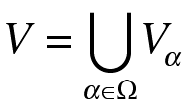
Eric Steinhart
Home

|
I am a professional philosopher who works primarily in philosophy of religion. Much of my work concerns a metaphysical system, which I call the Structure, which emerges from turning old-fashioned Platonism upside down. I look at the Structure from a variety of perspectives, including its logical, mathematical, and computational aspects. I show how the Structure provides the core metaphysics for a variety of recent and new religious movements, such as neopaganism, transhumanism, new psychedelic churches, process theology, religious naturalism, pantheism, the new atheism, Mormonism, and more. The Structure can be developed in atheistic, monotheistic, and polytheistic ways. The Structure is consistent with non-theistic conceptions of God, like those found in religious naturalism and pantheism, as well as process theological concepts of God. The Structure shows how theism and atheism share a deeper common core. More broadly, the Structure shows how a very wide variety of Western religious movements share a common core. |